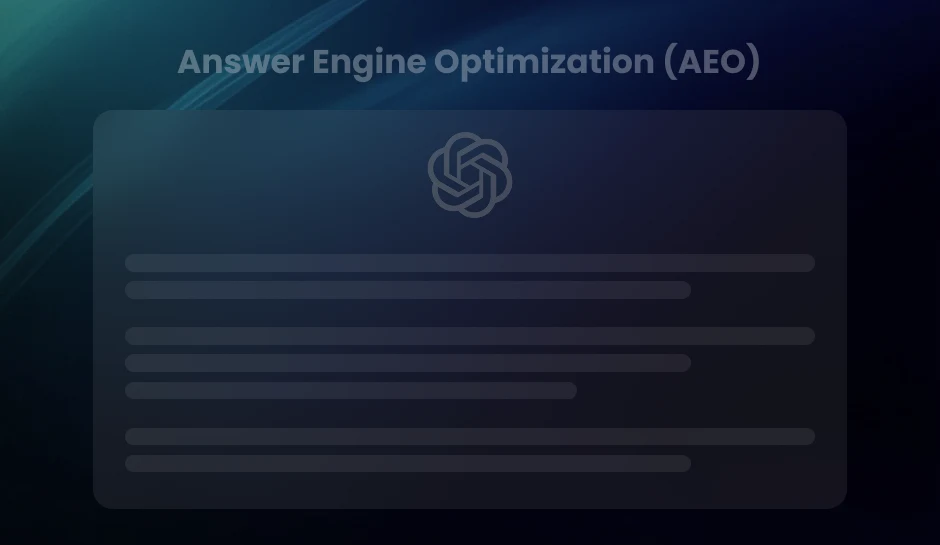
Optimizing Customer Journeys with Marketing Intelligence Optimize Techniques
Businesses aid customers with marketing intelligence optimization, simplifying complex digital landscapes. By decoding data and trends, companies refine strategies to meet customer needs effectively. Explore how this approach streamlines decision-making, ensuring every step resonates with customers, ultimately enhancing their experiences.
Imagine this: a customer stumbles upon your brand online, intrigued by a social media ad. They visit your website, but the navigation could be clearer and leave them frustrated. Later, they receive an email with generic messaging
that doesn’t resonate with their needs. Disappointed, they turn to a competitor who delivers a smooth, personalized experience.
It’s shocking, but this scenario is all too common. Customers expect a seamless, personalized journey across every touchpoint. But with a complex digital landscape, how do you ensure your marketing efforts guide customers toward conversion, not frustration?
Here’s the good news: Marketing intelligence holds the key. You can optimize customer journeys for maximum impact by leveraging data and insights. This blog dives deep into the best techniques for transforming your marketing strategy and creating an experience that keeps customers hooked.
The Role of Data Analysis in Marketing Intelligence
The backbone of effective marketing intelligence is the meticulous process of data analysis. This integral component systematically collects and examines marketing data to derive actionable insights.
Analysis: Transforming Data into Business Intelligence
Once data is collected, the analysis phase ensues. Marketing professionals employ statistical tools and algorithms to sift through and interpret data. The aim is to identify patterns, measure campaign performance, and forecast market movements. Through deep data analysis, organizations gain a clearer perspective of the business landscape, pinpointing where opportunities lie and what challenges may be ahead.
Conducting Market Research for Competitive Edge
Market research is a foundational element in developing competitive marketing strategies. By thoroughly understanding the landscape, businesses can make informed decisions that differentiate them from competitors and resonate strongly with their target audiences.
Outlining the Importance of Market Research in Crafting Effective Strategies
The essence of marketing intelligence lies in its ability to inform strategy through deep insights. Effective market research uncovers consumers’ needs and wants, industry dynamics, and competitors’ strengths and weaknesses. This holistic understanding enables businesses to create innovative and relevant strategies to market demand.
How Market Research Feeds into Competitive Intelligence
- Identify Emerging Trends:
- Benchmark Performance:
- Spot Opportunities:
- Minimize Risks:
By monitoring the market, companies can predict and adapt to emerging trends earlier than competitors.
Market research offers benchmarks that help measure success against industry standards.
Recognize untapped niches or underserved customer needs that can lead to innovative product development.
By understanding the competitive landscape, businesses can make calculated moves that minimize risks associated with new initiatives.
Leveraging Competitive Intelligence
Competitive intelligence is legally and ethically gathering and analyzing information about competitors’ strengths and weaknesses to enhance one’s market position. Its key impact lies in its potential to offer actionable insights that can significantly influence a company’s market positioning.
How Competitive Intelligence Informs Strategic Decisions
Competitive intelligence is a foundational element for strategic decision-making, enabling businesses to optimize their offerings. By understanding the competitive landscape, companies can make informed decisions such as:
- Product Adjustments:
- Pricing Strategies:
- Marketing Campaigns:
- Market Opportunities:
Refining features and benefits to outshine competitors.
Identifying pricing trends to adjust and position products competitively.
Tailoring messaging and positioning based on competitors’ approaches.
Finding gaps in the market that competitors still need to exploit.
Gaining Customer Insights for Targeted Marketing
Customer insights are the lifeblood of any successful marketing strategy. They enable businesses to delve deep into the complexities of their market segments. By harnessing the power of customer data, companies can unearth valuable patterns and preferences that define their audiences.
How Customer Insights Contribute to a Deeper Understanding of Market Segments
Understanding the nuances of customer interaction with your brand can reveal a treasure trove of information. These insights help create a granular view of market segments, define customer needs more effectively, and craft tailor-made messages that resonate deeply with each unique audience group.
Altering Marketing Strategies Based on Customer Feedback and Behavior
Listening to customer feedback and monitoring behavior offers a direct line to fine-tuning marketing strategies. Adjusting real-time campaigns according to the feedback can lead to higher engagement, satisfaction, and, ultimately, a more robust bottom line. Companies leveraging this adaptive approach can outperform competitors by staying relevant and responsive to the market’s shifting demands.
Key Takeaways
- React to customer queries and concerns swiftly to foster loyalty.
- Refine product offerings to meet the evolving preferences of your market.
- Use behavior data to personalize experiences and boost conversion rates.
Case Study: Optimizing Healthcare Operations with Predictive Analytics by DiGGrowth
Challenge:
The healthcare facility grappled with unpredictable patient demand, leading to resource allocation and appointment scheduling inefficiencies. With a proactive strategy for capacity planning, they could meet patient needs while maintaining cost-effectiveness.
Solution:
Partnering with DiGGrowth, the facility implemented a tailored predictive analytics model. DiGGrowth’s solution accurately forecasted patient demand patterns by leveraging historical patient data and demographics.
Implementation:
Using advanced statistical algorithms, the model anticipated fluctuations in patient volumes, enabling proactive resource allocation and scheduling adjustments.
Results:
- Improved Capacity Planning: Optimized staffing and resource allocation.
- Enhanced Patient Experience: Reduced wait times and appointment delays.
- Cost Savings: Increased efficiency led to significant cost savings.
- Strategic Decision-Making: Informed decisions on long-term initiatives.
With DiGGrowth’s predictive analytics, the healthcare facility achieved efficiency, cost-effectiveness, and improved patient satisfaction. Embracing proactive capacity planning sets new standards for excellence in healthcare operations.
Pro Tip- Incorporating predictive analytics into your marketing strategy is not a mere enhancement but a requisite shift towards a data-driven culture fully attuned to evolving market dynamics. It is about making informed decisions, personalizing customer experiences, and staying ahead of the competition.
Utilizing Business Intelligence Tools
As marketing landscapes become increasingly data-driven, marketers must adeptly navigate the wealth of information available at their fingertips. Employing a strategic approach to business intelligence tools is not only a need – it is the fulcrum of a refined marketing strategy.
Key Business Intelligence Tools for Marketers
- DiGGrowth:
- Google Analytics:
- Tableau:
- Salesforce:
- SAS:
- Microsoft Power BI:
DiGGrowth is revolutionizing marketing analytics with its no-code Marketing Analytics Platform. It helps marketers do more with less and increase their marketing ROI by up to 30%. DiGGrowth empowers CMOs, marketing operations managers, and performance marketers alike to accurately measure return on marketing investment, streamline campaign tracking, and unify disparate platforms for comprehensive analytics.
Provides comprehensive insights into website traffic and user behavior, facilitating a better understanding of digital presence and campaign performance.
A visual analytics platform that allows marketers to create interactive and shareable dashboards, revealing trends and patterns in data that inform strategic decisions.
Salesforce is a customer relationship management (CRM) tool that offers detailed records and analytics on customer interactions. This helps marketers tailor their efforts to meet audience needs effectively.
SAS offers sophisticated analytics, machine learning, and data management solutions. Marketers use SAS for complex data analysis and predictive modeling, gaining deeper insights into consumer behavior and market trends.
Microsoft Power BI enables users to aggregate, analyze, visualize, and share data. With strong integration capabilities for diverse data sources, it empowers marketers to make data-driven decisions.
Impact of Business Intelligence Tools on Marketing Strategies
- Data Synthesis:
- Strategic Agility:
- Customer-Centricity:
- Efficient Decision Making:
- Predictive Analytics:
They synthesize vast amounts of data into coherent and useful information that informs market trends and consumer preferences.
These tools foster an agile marketing environment by leveraging real-time data, allowing strategies to rapidly adapt to shifting market landscapes.
These tools enable a deeper understanding of customer journeys, leading to more personalized and effective marketing campaigns.
With data visualization and analytics features, business intelligence tools enable quicker and more informed decisions, steering marketing strategies with precision.
Sophisticated analytics can predict future trends and behaviors, allowing marketers to stay ahead of the curve and optimize for maximum ROI.
Implementing Marketing Automation for Efficiency
Marketing intelligence optimization isn’t just about gathering insights—it’s also about acting on them efficiently. Implementing marketing automation is one of the most impactful ways to increase efficiency within marketing campaigns. By leveraging technology to handle repetitive tasks, companies can free up precious resources to focus on more strategic initiatives.
Streamlining Marketing Processes
Marketing automation tools are designed to streamline marketing processes, ensuring no opportunity is missed due to human error or bandwidth limitations. Automating email campaigns, social media posts, and lead nurturing workflows are just a few examples of how these tools can help optimize every step of the marketing funnel for maximum efficiency and effectiveness.
Integration with Intelligence Tools
The true power of marketing automation comes to light when it is seamlessly integrated with other marketing intelligence tools. By combining automation software with analytics and customer data platforms, businesses can create a cohesive system that executes marketing tasks and continuously learns and improves. This integration allows for a unified approach to data analysis, leading to more informed decision-making and strategic adjustments in real-time.
- Automated reporting for quick insights on campaign performance
- Timely triggers for communication-based on customer behavior
- Personalized content delivery that increases relevance and engagement
Pro Tip- Implementing marketing automation is a critical step for businesses looking to optimize their marketing intelligence and increase overall efficiency. By embracing automation, companies can ensure their marketing efforts are strategic and scalable, leading to better results and a stronger competitive edge.
Key Performance Indicators: Your Compass in Marketing Intelligence Optimization
Marketing strategies are most effective when they are data-driven and results-oriented. This is where marketing intelligence optimization becomes pivotal. Tracking performance metrics not only benchmarks progress but also informs strategic decisions. Let’s delve into the core metrics that are the compass for steering your marketing efforts toward success. Among the most critical KPIs to track are:
Linking Performance Metrics to Strategic Decisions
Metrics are more than just numbers; they are the guiding stars that lead marketers to make informed, intelligent decisions. Understanding the relationship between the metrics and business outcomes allows for the following:
Identifying high-performing marketing channels and tactics leads to the optimization of future campaigns.
- Assessment of customer journeys and experiences to enhance conversion rates.
- Development of personalized marketing strategies with a customer-centric approach.
- Allocation of budget to the most effective marketing initiatives to improve overall ROI.
Mastering Segmentation and Targeting
Marketing intelligence plays a pivotal role in elevating the effectiveness of your marketing strategies. By mastering segmentation and targeting, you can ensure that your marketing efforts are efficient and incredibly impactful.
Implementing Effective Segmentation
- Demographic Segmentation:
- Behavioral Segmentation:
- Psychographic Segmentation:
- Geographic Segmentation:
To tailor your messaging appropriately, categorize your market by variables such as age, gender, income, and occupation.
Distinguish customers based on their knowledge of, attitude towards, use of, or response to a product, which can greatly inform the development of your marketing initiatives.
It includes psychological aspects influencing consumer behavior, such as lifestyle, values, and personality traits.
Consider the geographical boundaries where different market demands and opportunities exist, allowing for more localized and relevant marketing efforts.
The Significance of Targeting Accuracy
The age-old adage “quality over quantity” rings especially true in marketing. By leveraging marketing intelligence, companies can optimize targeting to achieve higher-quality leads more likely to convert. The precision in targeting increases the likelihood of engaging the right customer groups. It significantly enhances the customer experience by providing solutions that meet their needs and preferences. This tailored approach distinguishes leading brands from their competition as market landscapes evolve.
The Rise of Real-time Marketing
Real-time marketing revolutionizes how businesses engage with their audiences by leveraging instant data and interactions to deliver pertinent content, offers, and services at the right moment. This dynamic approach’s core resides in its capacity to make use of live information, thus allowing brands to respond swiftly to customer behaviors, trends, and events as they occur. The ability to adjust marketing strategies instantaneously translates into a significant competitive advantage.
Advantages of Real-Time Marketing
- Increased Engagement:
- Enhanced Customer Experience:
- Better Decision Making:
- Seizing Opportunities:
Interacting with customers at the moment can dramatically boost engagement levels and foster a deeper connection with your brand.
Tailoring the user experience based on real-time data helps create highly personalized encounters that customers value.
Immediate insights enable smarter, data-driven decisions that can optimize marketing efforts and resource allocation.
Real-time marketing allows brands to capitalize on current events or viral trends, staying relevant and top of mind for consumers.
Personalization as a Key Component of Marketing Intelligence
Personalization extends beyond addressing a customer by name in an email. It encompasses the tailored experience a brand creates for each individual by predicting their preferences, behaviors, and needs. By customizing interactions, companies show consumers they are valued and increase the relevance of their marketing messages, leading to greater engagement and loyalty.
Data-Driven Personalization
Businesses can create highly targeted campaigns by harnessing customer insights—gleaned from purchase history, online behavior, and social interactions. Personalization efforts driven by robust analytics enable marketers to deliver the right message to the right person at the right time, thereby substantially boosting the efficacy of marketing initiatives.
The Role of Customer Insights in Crafting Personal Experiences
- Understanding Customer Preferences:
- Behavioral Tracking:
- Segmentation:
Analyzing customer data provides valuable insights into individual preferences, which can inform product recommendations, content creation, and service offerings.
Keeping tabs on customer behaviors across various touchpoints can help predict future actions and tailor marketing strategies accordingly.
Dividing the customer base into specific segments allows for more precise personalization, enhancing the resonance of marketing messages with each subgroup.
Big Data Integration and Its Marketing Implications
The advent of big data has revolutionized the landscape of marketing intelligence. This term refers to the voluminous amount of structured and unstructured data that inundates businesses daily. But it’s different than the amount of important data; what organizations do with it matters. Big data can be analyzed for insights that lead to better decisions and strategic business moves, especially within marketing.
Understanding the Role of Big Data in Marketing Strategies
Integrating big data into marketing strategies allows businesses to create more efficient and effective marketing campaigns. By harnessing the comprehensive insights provided by big data analysis, organizations can understand customer preferences, market trends, and the impact of social media on consumer behavior at an unprecedented level. This leads to optimizing marketing efforts, ensuring that campaigns are targeted accurately and resources are allocated to their best use.
Challenges in Big Data Integration
- Data Silos:
- Compliance and Security:
- Technology Infrastructure:
Breaking down data silos is critical to ensure a unified view of customer information across all departments.
Adhering to legal standards and protecting consumer data to maintain trust and integrity in business operations.
Implementing the necessary technology infrastructure to handle large volumes of data.
Best Practices for Integration
To effectively leverage big data in marketing intelligence, organizations should embrace the following best practices:
- Invest in the Right Tools:
- Focus on Data Quality:
- Emphasize Actionable Insights:
- Foster a Data-Driven Culture:
Tools and platforms specialized in data analytics help process and interpret big data efficiently.
Ensure that the data used is accurate, complete, and timely to make informed marketing decisions.
Big data analytics aims to provide actionable insights that can lead to real business outcomes.
Encourage decision-making based on data-derived insights throughout the organization.
Conclusion
One thing is abundantly clear about marketing intelligence: its profound impact on strategic decisions within any business. Using data analysis, competitive insights, and predictive analytics is no longer a luxury—it’s a fundamental necessity to optimize operations, skyrocket customer engagement, and achieve unparalleled growth.
Marketing intelligence ensures that every strategic move is backed by data-driven decisions, significantly boosting the odds of successful outcomes. From enhancing marketing strategy to seizing real-time opportunities and personalizing customer experiences, marketing intelligence is the backbone of an agile and results-oriented approach.
Ready to unlock the full potential of marketing intelligence for your business? Talk to Us!
Contact info@diggrowth.com to learn how DiGGrowth can empower your marketing efforts and drive transformative results.
Sources
https://lpsonline.sas.upenn.edu/features/5-key-reasons-why-data-analytics-important-business
https://www.academia.edu/108834012/The_Power_of_Artificial_Intelligence_in_Personalized_Marketing
https://imarticus.org/blog/marketing-intelligence-and-strategy/
Ready to get started?
Increase your marketing ROI by 30% with custom dashboards & reports that present a clear picture of marketing effectiveness
Start Free Trial
Experience Premium Marketing Analytics At Budget-Friendly Pricing.

Learn how you can accurately measure return on marketing investment.
Additional Resources
Don’t Let AI Break Your Brand: What Every CMO Should Know
AI isn’t just another marketing tool. It’s changing...
Read full post postFrom Demos to Deployment: Why MCP Is the Foundation of Agentic AI
A quiet revolution is unfolding in AI. And...
Read full post postAnswer Engine Optimization (AEO): The New Frontier of SEO in 2025
As digital experiences continue to evolve, so does...
Read full post postFAQ's
Marketing intelligence optimization uses data analysis, competitive insights, and predictive analytics to refine marketing strategies and operations. It's vital for businesses as it enables data-driven decision-making, enhances customer experiences, and drives sustainable growth.
Unlike traditional methods, which rely on intuition, marketing intelligence optimization uses data analysis and predictive analytics to uncover actionable insights and trends. This approach allows businesses to adapt real-time strategies, staying agile in response to market changes.
A successful strategy typically includes data analysis, competitive intelligence, predictive analytics, and personalized marketing initiatives. These components help businesses gain insights into consumer behavior, identify market trends, and tailor marketing efforts to meet evolving customer needs.
Measuring effectiveness involves tracking key performance indicators like conversion rates, customer acquisition cost (CAC), customer lifetime value (CLV), return on investment (ROI), and engagement rates. Regular monitoring and analysis of these metrics help assess impact and guide data-driven adjustments.
Common challenges include data fragmentation, lack of expertise, privacy concerns, and resistance to change. Overcoming these obstacles requires investing in data integration tools, building internal capabilities, prioritizing data security, and fostering a culture of data-driven decision-making.
 Shahzad Mussawir
Shahzad Mussawir  Rahul Sachdeva
Rahul Sachdeva 

